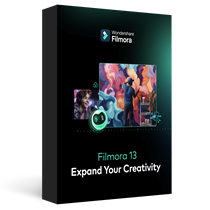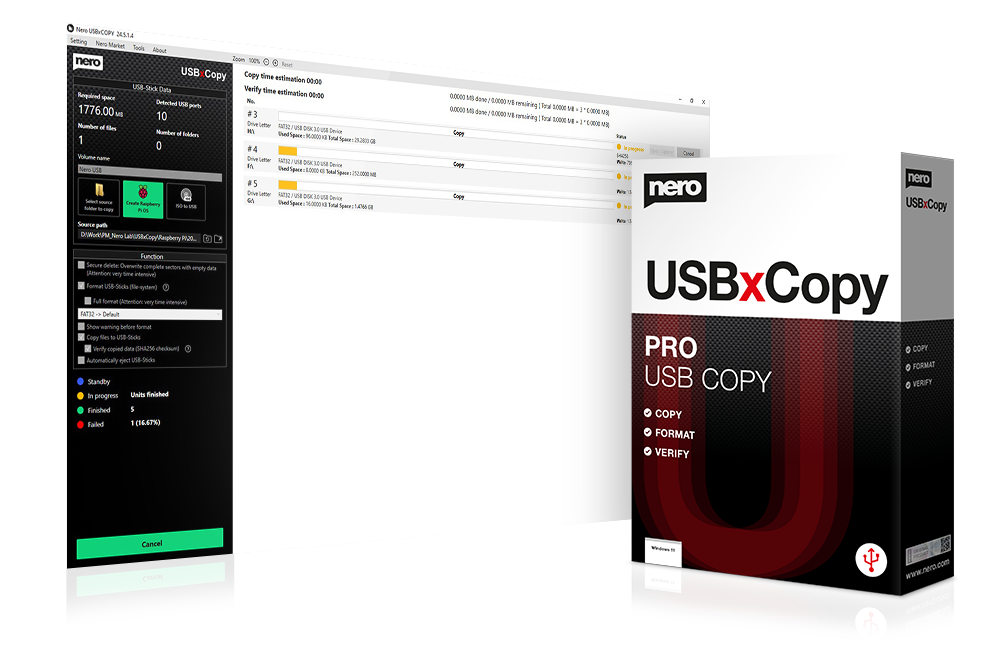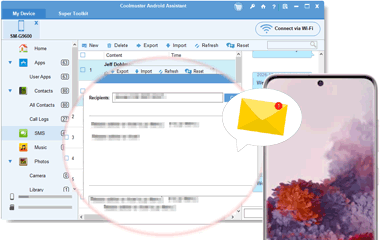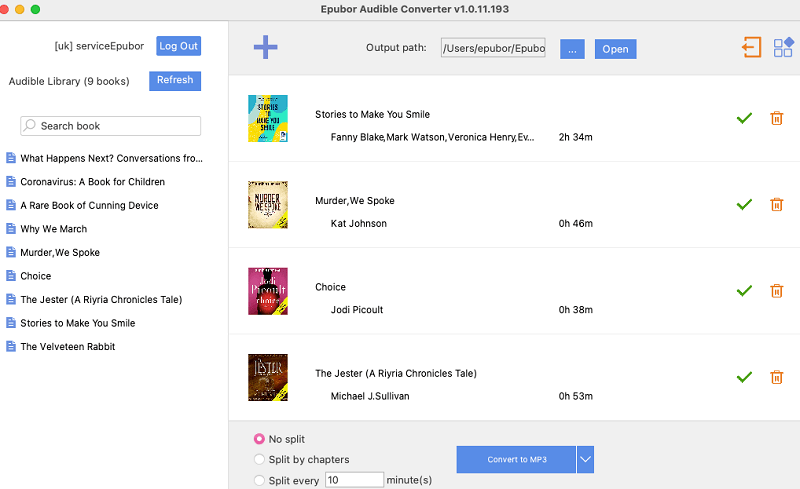![[Updated] In 2024, Expedited Guide to Effective Double-Take Technique](https://thmb.techidaily.com/a0ea0929e49147a7aa2982696f1085c4ea3dc3044596db757054a8f03e6ab91e.jpg)
"[Updated] In 2024, Expedited Guide to Effective Double-Take Technique"

Expedited Guide to Effective Double-Take Technique
The world of video-making owes much of its magic to small leaps of innovation. One of these leaps is the use of the chroma key background, which most people know by the more colloquial term—green screen.

Chroma key, also known as green screen or blue screen, is a cool hack for seamless visual storytelling, allowing content creators to replace backgrounds with any image or video they want. This technique is widely embraced in film, television, and online content, and has opened the door to limitless creative possibilities. Aside from its ability to maximize creativity, it is also cheap to employ and convenient to set up, which has made it a staple for everyone who works with visuals.
In this simple guide, we’ll delve into the fundamentals of the chroma key effect, how it is used for video making, and how to leverage that as you perfect your visual content.
YouTube Video Background Creating realistic video scenes at your will is easy to complete with Filmora green screen removal.
Create Video Backgrounds Create Video Backgrounds Learn Green Screen

How Does Chroma Key Work?

Chroma Keying is done by singling out a specific color (usually green or blue) from the foreground, removing it, and replacing it with a different background (for example, a sunset). This process typically follows a series of steps:
- Background Selection:
A solid, single-color background, often green or blue, that contrasts well with the subject must be used. The color chosen should not be present in the subject or any props in the camera field to avoid unintentional transparency.
- Color Keying:
This requires the use of specialized visual effects software to key out the chosen color. The green or blue background is designated as transparent, making everything of that color see-through. The software distinguishes between the keyed color and the subject, creating a mask for the transparent areas.
- Foreground Filming:
This involves filming the subject against the live chroma key background. During filming, the chosen background color (green or blue) won’t appear in the final result due to its transparency. The subject is captured as if separately from the isolated background.
- Post-Processing:
In post-production processing, the editor takes the keyed-out color and replaces it with the new background of their choice. This step creates the illusion that the subject is in a different setting or environment. The transparent areas become filled with the chosen background which, if done right, results in a cohesive and visually appealing composition.
Why Green?
Theoretically, the chroma key background can be any solid color. However, the most commonly used colors are studio blue and bright green, with the latter far more common.
The choice of background color depends on the specific requirements of the production and the colors present in the scenes being filmed.
Free Download For Win 7 or later(64-bit)
Free Download For macOS 10.14 or later
Contrast
The less similar your chosen background color is to natural skin tones, the easier to isolate and replace in your footage. Bright green provides a strong contrast to most human skin tones and is less likely to be present in costumes or natural surroundings, making it easier to isolate subjects during the color separation.
Luminance
The color green emits light with greater intensity than blue, allowing for far more effective isolation by cameras during filming. This also means that blue screens demand increased lighting for proper exposure compared to green. This situation may be less than ideal if you lack powerful lighting or you don’t have the big bucks for them.
Digital Sensors
Many digital cameras and sensors are more sensitive to green wavelengths, resulting in cleaner and more accurate color keying during post-processing. Modern technology has also evolved to optimize for a green background, making it a more practical choice for the chroma key effect.
Wardrobe and Set Design
Bright green occurs less naturally in costumes and set designs than other colors, making green the optimal choice for reducing the likelihood of color spill and keying issues. However, if you know your scene will have lots of green, it is probably best to film with a blue screen, so there’s less risk of color spill and less post-production work.
Setting up Your Own Chroma Key Studio
Setting up your chroma key is convenient and straightforward, but there are some key factors to consider while setting up to ensure maximal performance.
Choosing the Right Background Color
The first step in the chroma key setup is selecting the right background color to be keyed out. This choice determines your effective color separation and ensures a smooth keying process during editing. Choosing a chroma-key background color that contrasts distinctly with the subject’s colors is essential for effective color separation. This prevents unintentional transparency, color spill, and ensures a polished final result.
Lighting Considerations
Lighting is an important part of the chroma-keying process. Bold, uniform, and consistent lighting on both the subject and the background makes it easy to delineate one from the other fully. This minimizes shadows and variations in color, creating a smooth and seamless keying process. Multiple diffuse lights from different angles are often used to illuminate the green screen evenly.
Positioning/Camera
Proper subject and camera placement are necessary to ensure an even color-keying process during post-production. To prevent shadow interference, the green screen should be smooth, tense, and without wrinkles or shadows.
High-quality cameras are essential every time, especially for chroma keying. Images with better definition are easier to key, so camera quality significantly affects the outcome. Even if your camera isn’t the best, merely shooting well can ensure a clean color-keying process during editing, resulting in professional-looking visuals.
Recording Tips for Chroma Key
- Proper Lighting
Maintaining uniform and well-defined lighting during recording is essential for a successful chroma-keying process. This consistency ensures a seamless keying process during post-production.
- Keep Distance from the Green Screen
The optimal distance between the subject and the green screen minimizes color spill and allows for natural movements. Proper distance between subject and background allows for easier isolation of the background and much smoother post-editing. A recommended starting point for the issue is around 6 to 10 feet from the background.
- Subjects and Clothing
As mentioned before, the choice of costume for Selecting appropriate clothing that doesn’t match the chroma key color prevents transparency issues. Subjects also have to be positioned in such a way that there is minimal light interference and reflection. These contribute to a flawless chroma key outcome.
3 Basic Troubleshooting Strategies
- Color Spill
Sometimes, reflected light from your green background can be cast on your subject and may remain so when the background light is keyed out. This phenomenon is known as a color spill. It is usually because of uneven lighting or shooting around reflecting surfaces. Avoiding spill can differentiate between good and lousy chroma key aftereffects.
Human hair is one area where color spill can show up unsuspectingly. Due to the translucency of hair, it is common for some unintended light to seep through. This allows some background visibility, which you do not want with a chroma key. This is especially notable with lighter hair colors like blond hair.
There are ways to account for this. Many video-editing software have features such as spill suppression and screen matte adjustments that can enhance the final footage. Specialized plugins also go a long way in ensuring minimizing spill. Addressing spill correction tackles unwanted green artifacts and ensures a clean keying process.
- Poor Lighting
Suboptimal green screen lighting can lead to inconsistencies in keying and editing, undermining your product. One way to avoid this is to light the screen and subject separately. Another tip, although expensive, is using multiple diffuse light sources and trying to maintain even lighting across every square foot of your scene. Super bright or dark spots can ruin your output, so it’s worth the extra effort if you don’t want to deal with problematic post-production.
- Poorly Refined Edges
Chroma keying should leave your videos with crisp, defined, natural-looking edges. But post-production editing can make all the difference if it doesn’t come out to your taste. Softening and refining edges make a smoother transition between the foreground object and the new background. Light adjustments to edge thickness and screen matte settings can also help enhance overall visual quality and add finesse to your work.
Conclusion
Green screen photography produces excellent results, and its ease of use makes it indispensable for videographers of all levels. In this guide, we’ve discussed chroma key technology, its role in the industry, and how to apply it to your craft to elevate visual content.
Chroma key, also known as green screen or blue screen, is a cool hack for seamless visual storytelling, allowing content creators to replace backgrounds with any image or video they want. This technique is widely embraced in film, television, and online content, and has opened the door to limitless creative possibilities. Aside from its ability to maximize creativity, it is also cheap to employ and convenient to set up, which has made it a staple for everyone who works with visuals.
In this simple guide, we’ll delve into the fundamentals of the chroma key effect, how it is used for video making, and how to leverage that as you perfect your visual content.
YouTube Video Background Creating realistic video scenes at your will is easy to complete with Filmora green screen removal.
Create Video Backgrounds Create Video Backgrounds Learn Green Screen

How Does Chroma Key Work?

Chroma Keying is done by singling out a specific color (usually green or blue) from the foreground, removing it, and replacing it with a different background (for example, a sunset). This process typically follows a series of steps:
- Background Selection:
A solid, single-color background, often green or blue, that contrasts well with the subject must be used. The color chosen should not be present in the subject or any props in the camera field to avoid unintentional transparency.
- Color Keying:
This requires the use of specialized visual effects software to key out the chosen color. The green or blue background is designated as transparent, making everything of that color see-through. The software distinguishes between the keyed color and the subject, creating a mask for the transparent areas.
- Foreground Filming:
This involves filming the subject against the live chroma key background. During filming, the chosen background color (green or blue) won’t appear in the final result due to its transparency. The subject is captured as if separately from the isolated background.
- Post-Processing:
In post-production processing, the editor takes the keyed-out color and replaces it with the new background of their choice. This step creates the illusion that the subject is in a different setting or environment. The transparent areas become filled with the chosen background which, if done right, results in a cohesive and visually appealing composition.
Why Green?
Theoretically, the chroma key background can be any solid color. However, the most commonly used colors are studio blue and bright green, with the latter far more common.
The choice of background color depends on the specific requirements of the production and the colors present in the scenes being filmed.
Free Download For Win 7 or later(64-bit)
Free Download For macOS 10.14 or later
Contrast
The less similar your chosen background color is to natural skin tones, the easier to isolate and replace in your footage. Bright green provides a strong contrast to most human skin tones and is less likely to be present in costumes or natural surroundings, making it easier to isolate subjects during the color separation.
Luminance
The color green emits light with greater intensity than blue, allowing for far more effective isolation by cameras during filming. This also means that blue screens demand increased lighting for proper exposure compared to green. This situation may be less than ideal if you lack powerful lighting or you don’t have the big bucks for them.
Digital Sensors
Many digital cameras and sensors are more sensitive to green wavelengths, resulting in cleaner and more accurate color keying during post-processing. Modern technology has also evolved to optimize for a green background, making it a more practical choice for the chroma key effect.
Wardrobe and Set Design
Bright green occurs less naturally in costumes and set designs than other colors, making green the optimal choice for reducing the likelihood of color spill and keying issues. However, if you know your scene will have lots of green, it is probably best to film with a blue screen, so there’s less risk of color spill and less post-production work.
Setting up Your Own Chroma Key Studio
Setting up your chroma key is convenient and straightforward, but there are some key factors to consider while setting up to ensure maximal performance.
Choosing the Right Background Color
The first step in the chroma key setup is selecting the right background color to be keyed out. This choice determines your effective color separation and ensures a smooth keying process during editing. Choosing a chroma-key background color that contrasts distinctly with the subject’s colors is essential for effective color separation. This prevents unintentional transparency, color spill, and ensures a polished final result.
Lighting Considerations
Lighting is an important part of the chroma-keying process. Bold, uniform, and consistent lighting on both the subject and the background makes it easy to delineate one from the other fully. This minimizes shadows and variations in color, creating a smooth and seamless keying process. Multiple diffuse lights from different angles are often used to illuminate the green screen evenly.
Positioning/Camera
Proper subject and camera placement are necessary to ensure an even color-keying process during post-production. To prevent shadow interference, the green screen should be smooth, tense, and without wrinkles or shadows.
High-quality cameras are essential every time, especially for chroma keying. Images with better definition are easier to key, so camera quality significantly affects the outcome. Even if your camera isn’t the best, merely shooting well can ensure a clean color-keying process during editing, resulting in professional-looking visuals.
Recording Tips for Chroma Key
- Proper Lighting
Maintaining uniform and well-defined lighting during recording is essential for a successful chroma-keying process. This consistency ensures a seamless keying process during post-production.
- Keep Distance from the Green Screen
The optimal distance between the subject and the green screen minimizes color spill and allows for natural movements. Proper distance between subject and background allows for easier isolation of the background and much smoother post-editing. A recommended starting point for the issue is around 6 to 10 feet from the background.
- Subjects and Clothing
As mentioned before, the choice of costume for Selecting appropriate clothing that doesn’t match the chroma key color prevents transparency issues. Subjects also have to be positioned in such a way that there is minimal light interference and reflection. These contribute to a flawless chroma key outcome.
3 Basic Troubleshooting Strategies
- Color Spill
Sometimes, reflected light from your green background can be cast on your subject and may remain so when the background light is keyed out. This phenomenon is known as a color spill. It is usually because of uneven lighting or shooting around reflecting surfaces. Avoiding spill can differentiate between good and lousy chroma key aftereffects.
Human hair is one area where color spill can show up unsuspectingly. Due to the translucency of hair, it is common for some unintended light to seep through. This allows some background visibility, which you do not want with a chroma key. This is especially notable with lighter hair colors like blond hair.
There are ways to account for this. Many video-editing software have features such as spill suppression and screen matte adjustments that can enhance the final footage. Specialized plugins also go a long way in ensuring minimizing spill. Addressing spill correction tackles unwanted green artifacts and ensures a clean keying process.
- Poor Lighting
Suboptimal green screen lighting can lead to inconsistencies in keying and editing, undermining your product. One way to avoid this is to light the screen and subject separately. Another tip, although expensive, is using multiple diffuse light sources and trying to maintain even lighting across every square foot of your scene. Super bright or dark spots can ruin your output, so it’s worth the extra effort if you don’t want to deal with problematic post-production.
- Poorly Refined Edges
Chroma keying should leave your videos with crisp, defined, natural-looking edges. But post-production editing can make all the difference if it doesn’t come out to your taste. Softening and refining edges make a smoother transition between the foreground object and the new background. Light adjustments to edge thickness and screen matte settings can also help enhance overall visual quality and add finesse to your work.
Conclusion
Green screen photography produces excellent results, and its ease of use makes it indispensable for videographers of all levels. In this guide, we’ve discussed chroma key technology, its role in the industry, and how to apply it to your craft to elevate visual content.
 NeoDownloader - Fast and fully automatic image/video/music downloader.
NeoDownloader - Fast and fully automatic image/video/music downloader.
Breakdown: Fundamental Aspects of ASMR Videos
Things About ASMR Video You Should Know

Richard Bennett
Mar 27, 2024• Proven solutions
Despite their recent popularity, ASMR videos are still surrounded by a cloud of mystery, as there is so much we don’t know about the ASMR phenomenon. The scientific explanations of ASMR and the list of its potential causes of this reaction are not as extensive as they can be.
Moreover, the visual and audio content that is designed to trigger the ASMR is perceived as unusual which further contributes to the controversy associated with this genre of videos. You are at the right place if you would like to learn more about ASMR because in this article we are going to take you through all the things you need to know about ASMR.
How Do ASMR Videos Work?
As strange as it may sound, millions of people around the globe are watching videos of someone whispering into a microphone, and apparently, it is helping them deal with stress, anxiety, and insomnia.
However, watching a video in any setting isn’t enough to trigger ASMR. You have to be in a quiet room and away from the everyday hustle in order to put yourself into the state of mind in which experiencing ASMR is possible. So, once you’ve found a comfortable position in a quiet room you can play an ASMR video.
The type of trigger the video’s host is going to use varies from one video to another because in one video they might just speak softly into a microphone or gently blow air into it, while in another they might produce sounds using plastic or metal objects.
Moreover, the ASMR triggers the video’s host is going to use also depend on the host because some hosts are predominantly focused on audio triggers, while others focus on visual ASMR triggers. Role-plays are also quite common for ASMR videos and you can easily end up seeing the hosts dressed up as librarians, doctors, or even tailors pretending to measure your dimensions.
As a form of synesthesia, ASMR is triggered by a role-play or a low speaking voice as the visual or audio stimuli is associated with a pleasant experience that originates from the top of the head and then spreads through the neck and back.
Ideally, such a video should get you in the state of calmness and slight euphoria which in turn should help you relax and relieve the stress you’re experiencing. Whether or not ASMR videos can achieve this goal is debatable.
Can ASMR Be Experienced by Anyone?
The short and simple answer is no. In fact, most people are not ASMR sensitive and they don’t experience a tingling sensation when they hear someone whispering or see some of the common visual triggers of ASMR.
In addition, those who are capable of experiencing AMSR cannot initiate the sensation with just any of the known triggers. In most cases, ASMR is triggered by a particular sound or a visual stimulus that helps the person relax and feel the pleasurable sensation spread through their body.
Most ASMR videos are long so that the viewer can take their time to unwind before falling asleep. Whether or not the ASMR video will achieve the desired effect largely depends on the person watching it, because the AMSR trigger the video features may not affect the viewer who is sensitive to different types of stimuli.
The Most Common ASMR Triggers
It is still unclear what can trigger an ASMR since scientific research in this field has been scarce. Hence, it is difficult to know exactly what and under which circumstances can initiate such a reaction.
However, this phenomenon can be triggered by the following stimuli:
1. Whispering or a Low Soft Voice
This is by far the most common ASMR trigger. Speaking in a low soft voice will likely create a tingling and pleasant sensation that will ultimately relax the listener. Consequently, the vast majority of ASMR video hosts are whispering or speaking softly into the microphone.
2. Hearing repetitive sounds created by the performance of mundane tasks
The sounds created while turning the pages of a book, crumpling a piece of paper, or typing on a mechanical keyboard can all be potential ASMR triggers. It seems that the pleasant sensation is associated with the repetitiveness of these sounds, as they create a calming atmosphere.
3. Watching someone perform an everyday task
Seeing someone draw, paint, chop up food, or even write on a piece of paper can trigger the ASMR. Some people find the visual aspect of these actions relaxing, which in turn helps them get rid of the stress and sleep better.
4. Sounds generated while a person is eating or drinking
Chewing food loudly or slurping can generate a tingling sensation at the top of your head that later spreads through the entire body.
5. Getting attention
Although almost everyone likes receiving attention, some people have a strong ASMR reaction to being the center of someone’s attention.
6. Triggering the ASMR without the use of external factors
Some people have the ability to trigger ASMR consciously without having to resort to audio or visual stimuli. However, this is quite rare as most members of the ASMR community rely on video and audio content to trigger the ASMR.
7. Tapping on a surface
Tapping on the surface of a microphone or the surface of plastic or metal objects is yet another common ASMR trigger. The reparative tapping sound initiates a pleasant sensation that relaxes a person.
8. A hand touching a face
Tactile stimuli like a hand touching a face are known to be ASMR triggers. Besides touching a face, touching someone’s hand or hair can also trigger ASMR.
9. Hearing a particular genre of music
People who love music often have a physical reaction to it. Hearing your favorite genre of music can produce the ASMR sensation.
10. Listening to someone exhale into a mic
This ASMR trigger is frequently used in ASMR videos. Like all other audio ASMR triggers, blowing air into a microphone can help a person relax and fall asleep.
What Makes ASMR Videos So Popular?
A little over a year ago there were more than 13 million ASMR videos on YouTube, which shows vividly how popular this genre of video has become. Moreover, the videos containing hosts and animals eating different types of food have amassed billions of views.
The stressful lives we all lead, boredom, or simply the need to experience something different are the most common reasons why people watch ASMR videos. In addition, the viewers of these videos suggest that they help them deal with depression, anxiety, and other psychological problems. Over the course of the last decade, the ASMR videos have risen from obscurity to become one of the most popular genres of YouTube videos largely due to their uniqueness and their relaxing nature.
Where to Find ASMR videos?
A simple google search will reveal a variety of ASMR videos, since all major video hosting platforms like YouTube, Instagram, Twitch, or Vimeo offer a broad selection of ASMR videos. Their contents vary from simple videos of hosts whispering into a microphone to carefully planned and staged role plays. Also, you try installing the app called Tingles on your Smartphone if you want to have access to a huge collection of ASMR triggers.
Moreover, ASMR videos can be found on websites that host pornographic content, which is the consequence of the sexualization of this phenomenon. Therefore where to look for ASMR videos depends on the type of ASMR content you’re looking for. One thing is certain, you won’t have much trouble finding ASMR videos online.
Conclusion
At the beginning of the decade, ASMR was a little known phenomenon very few people knew about. Today, ASMR videos attract huge audiences from all around the world, as they’ve become one of the most popular types of videos on YouTube and other video hosting platforms.
Despite the enormous popularity of ASMR content, we still have much to learn about the phenomenon itself and what triggers it. The little information that is available indicates that not everyone is capable of having an autonomous sensory meridian response to audio or visual stimuli. Furthermore, the potential triggers vary from whispering to watching someone prepare food, which contributes to the mystery surrounding the phenomenon.
Hopefully, this article has helped you develop a better understanding of ASMR. If so, share your thought with us in the comments.

Richard Bennett
Richard Bennett is a writer and a lover of all things video.
Follow @Richard Bennett
Richard Bennett
Mar 27, 2024• Proven solutions
Despite their recent popularity, ASMR videos are still surrounded by a cloud of mystery, as there is so much we don’t know about the ASMR phenomenon. The scientific explanations of ASMR and the list of its potential causes of this reaction are not as extensive as they can be.
Moreover, the visual and audio content that is designed to trigger the ASMR is perceived as unusual which further contributes to the controversy associated with this genre of videos. You are at the right place if you would like to learn more about ASMR because in this article we are going to take you through all the things you need to know about ASMR.
How Do ASMR Videos Work?
As strange as it may sound, millions of people around the globe are watching videos of someone whispering into a microphone, and apparently, it is helping them deal with stress, anxiety, and insomnia.
However, watching a video in any setting isn’t enough to trigger ASMR. You have to be in a quiet room and away from the everyday hustle in order to put yourself into the state of mind in which experiencing ASMR is possible. So, once you’ve found a comfortable position in a quiet room you can play an ASMR video.
The type of trigger the video’s host is going to use varies from one video to another because in one video they might just speak softly into a microphone or gently blow air into it, while in another they might produce sounds using plastic or metal objects.
Moreover, the ASMR triggers the video’s host is going to use also depend on the host because some hosts are predominantly focused on audio triggers, while others focus on visual ASMR triggers. Role-plays are also quite common for ASMR videos and you can easily end up seeing the hosts dressed up as librarians, doctors, or even tailors pretending to measure your dimensions.
As a form of synesthesia, ASMR is triggered by a role-play or a low speaking voice as the visual or audio stimuli is associated with a pleasant experience that originates from the top of the head and then spreads through the neck and back.
Ideally, such a video should get you in the state of calmness and slight euphoria which in turn should help you relax and relieve the stress you’re experiencing. Whether or not ASMR videos can achieve this goal is debatable.
Can ASMR Be Experienced by Anyone?
The short and simple answer is no. In fact, most people are not ASMR sensitive and they don’t experience a tingling sensation when they hear someone whispering or see some of the common visual triggers of ASMR.
In addition, those who are capable of experiencing AMSR cannot initiate the sensation with just any of the known triggers. In most cases, ASMR is triggered by a particular sound or a visual stimulus that helps the person relax and feel the pleasurable sensation spread through their body.
Most ASMR videos are long so that the viewer can take their time to unwind before falling asleep. Whether or not the ASMR video will achieve the desired effect largely depends on the person watching it, because the AMSR trigger the video features may not affect the viewer who is sensitive to different types of stimuli.
The Most Common ASMR Triggers
It is still unclear what can trigger an ASMR since scientific research in this field has been scarce. Hence, it is difficult to know exactly what and under which circumstances can initiate such a reaction.
However, this phenomenon can be triggered by the following stimuli:
1. Whispering or a Low Soft Voice
This is by far the most common ASMR trigger. Speaking in a low soft voice will likely create a tingling and pleasant sensation that will ultimately relax the listener. Consequently, the vast majority of ASMR video hosts are whispering or speaking softly into the microphone.
2. Hearing repetitive sounds created by the performance of mundane tasks
The sounds created while turning the pages of a book, crumpling a piece of paper, or typing on a mechanical keyboard can all be potential ASMR triggers. It seems that the pleasant sensation is associated with the repetitiveness of these sounds, as they create a calming atmosphere.
3. Watching someone perform an everyday task
Seeing someone draw, paint, chop up food, or even write on a piece of paper can trigger the ASMR. Some people find the visual aspect of these actions relaxing, which in turn helps them get rid of the stress and sleep better.
4. Sounds generated while a person is eating or drinking
Chewing food loudly or slurping can generate a tingling sensation at the top of your head that later spreads through the entire body.
5. Getting attention
Although almost everyone likes receiving attention, some people have a strong ASMR reaction to being the center of someone’s attention.
6. Triggering the ASMR without the use of external factors
Some people have the ability to trigger ASMR consciously without having to resort to audio or visual stimuli. However, this is quite rare as most members of the ASMR community rely on video and audio content to trigger the ASMR.
7. Tapping on a surface
Tapping on the surface of a microphone or the surface of plastic or metal objects is yet another common ASMR trigger. The reparative tapping sound initiates a pleasant sensation that relaxes a person.
8. A hand touching a face
Tactile stimuli like a hand touching a face are known to be ASMR triggers. Besides touching a face, touching someone’s hand or hair can also trigger ASMR.
9. Hearing a particular genre of music
People who love music often have a physical reaction to it. Hearing your favorite genre of music can produce the ASMR sensation.
10. Listening to someone exhale into a mic
This ASMR trigger is frequently used in ASMR videos. Like all other audio ASMR triggers, blowing air into a microphone can help a person relax and fall asleep.
What Makes ASMR Videos So Popular?
A little over a year ago there were more than 13 million ASMR videos on YouTube, which shows vividly how popular this genre of video has become. Moreover, the videos containing hosts and animals eating different types of food have amassed billions of views.
The stressful lives we all lead, boredom, or simply the need to experience something different are the most common reasons why people watch ASMR videos. In addition, the viewers of these videos suggest that they help them deal with depression, anxiety, and other psychological problems. Over the course of the last decade, the ASMR videos have risen from obscurity to become one of the most popular genres of YouTube videos largely due to their uniqueness and their relaxing nature.
Where to Find ASMR videos?
A simple google search will reveal a variety of ASMR videos, since all major video hosting platforms like YouTube, Instagram, Twitch, or Vimeo offer a broad selection of ASMR videos. Their contents vary from simple videos of hosts whispering into a microphone to carefully planned and staged role plays. Also, you try installing the app called Tingles on your Smartphone if you want to have access to a huge collection of ASMR triggers.
Moreover, ASMR videos can be found on websites that host pornographic content, which is the consequence of the sexualization of this phenomenon. Therefore where to look for ASMR videos depends on the type of ASMR content you’re looking for. One thing is certain, you won’t have much trouble finding ASMR videos online.
Conclusion
At the beginning of the decade, ASMR was a little known phenomenon very few people knew about. Today, ASMR videos attract huge audiences from all around the world, as they’ve become one of the most popular types of videos on YouTube and other video hosting platforms.
Despite the enormous popularity of ASMR content, we still have much to learn about the phenomenon itself and what triggers it. The little information that is available indicates that not everyone is capable of having an autonomous sensory meridian response to audio or visual stimuli. Furthermore, the potential triggers vary from whispering to watching someone prepare food, which contributes to the mystery surrounding the phenomenon.
Hopefully, this article has helped you develop a better understanding of ASMR. If so, share your thought with us in the comments.

Richard Bennett
Richard Bennett is a writer and a lover of all things video.
Follow @Richard Bennett
Richard Bennett
Mar 27, 2024• Proven solutions
Despite their recent popularity, ASMR videos are still surrounded by a cloud of mystery, as there is so much we don’t know about the ASMR phenomenon. The scientific explanations of ASMR and the list of its potential causes of this reaction are not as extensive as they can be.
Moreover, the visual and audio content that is designed to trigger the ASMR is perceived as unusual which further contributes to the controversy associated with this genre of videos. You are at the right place if you would like to learn more about ASMR because in this article we are going to take you through all the things you need to know about ASMR.
How Do ASMR Videos Work?
As strange as it may sound, millions of people around the globe are watching videos of someone whispering into a microphone, and apparently, it is helping them deal with stress, anxiety, and insomnia.
However, watching a video in any setting isn’t enough to trigger ASMR. You have to be in a quiet room and away from the everyday hustle in order to put yourself into the state of mind in which experiencing ASMR is possible. So, once you’ve found a comfortable position in a quiet room you can play an ASMR video.
The type of trigger the video’s host is going to use varies from one video to another because in one video they might just speak softly into a microphone or gently blow air into it, while in another they might produce sounds using plastic or metal objects.
Moreover, the ASMR triggers the video’s host is going to use also depend on the host because some hosts are predominantly focused on audio triggers, while others focus on visual ASMR triggers. Role-plays are also quite common for ASMR videos and you can easily end up seeing the hosts dressed up as librarians, doctors, or even tailors pretending to measure your dimensions.
As a form of synesthesia, ASMR is triggered by a role-play or a low speaking voice as the visual or audio stimuli is associated with a pleasant experience that originates from the top of the head and then spreads through the neck and back.
Ideally, such a video should get you in the state of calmness and slight euphoria which in turn should help you relax and relieve the stress you’re experiencing. Whether or not ASMR videos can achieve this goal is debatable.
Can ASMR Be Experienced by Anyone?
The short and simple answer is no. In fact, most people are not ASMR sensitive and they don’t experience a tingling sensation when they hear someone whispering or see some of the common visual triggers of ASMR.
In addition, those who are capable of experiencing AMSR cannot initiate the sensation with just any of the known triggers. In most cases, ASMR is triggered by a particular sound or a visual stimulus that helps the person relax and feel the pleasurable sensation spread through their body.
Most ASMR videos are long so that the viewer can take their time to unwind before falling asleep. Whether or not the ASMR video will achieve the desired effect largely depends on the person watching it, because the AMSR trigger the video features may not affect the viewer who is sensitive to different types of stimuli.
The Most Common ASMR Triggers
It is still unclear what can trigger an ASMR since scientific research in this field has been scarce. Hence, it is difficult to know exactly what and under which circumstances can initiate such a reaction.
However, this phenomenon can be triggered by the following stimuli:
1. Whispering or a Low Soft Voice
This is by far the most common ASMR trigger. Speaking in a low soft voice will likely create a tingling and pleasant sensation that will ultimately relax the listener. Consequently, the vast majority of ASMR video hosts are whispering or speaking softly into the microphone.
2. Hearing repetitive sounds created by the performance of mundane tasks
The sounds created while turning the pages of a book, crumpling a piece of paper, or typing on a mechanical keyboard can all be potential ASMR triggers. It seems that the pleasant sensation is associated with the repetitiveness of these sounds, as they create a calming atmosphere.
3. Watching someone perform an everyday task
Seeing someone draw, paint, chop up food, or even write on a piece of paper can trigger the ASMR. Some people find the visual aspect of these actions relaxing, which in turn helps them get rid of the stress and sleep better.
4. Sounds generated while a person is eating or drinking
Chewing food loudly or slurping can generate a tingling sensation at the top of your head that later spreads through the entire body.
5. Getting attention
Although almost everyone likes receiving attention, some people have a strong ASMR reaction to being the center of someone’s attention.
6. Triggering the ASMR without the use of external factors
Some people have the ability to trigger ASMR consciously without having to resort to audio or visual stimuli. However, this is quite rare as most members of the ASMR community rely on video and audio content to trigger the ASMR.
7. Tapping on a surface
Tapping on the surface of a microphone or the surface of plastic or metal objects is yet another common ASMR trigger. The reparative tapping sound initiates a pleasant sensation that relaxes a person.
8. A hand touching a face
Tactile stimuli like a hand touching a face are known to be ASMR triggers. Besides touching a face, touching someone’s hand or hair can also trigger ASMR.
9. Hearing a particular genre of music
People who love music often have a physical reaction to it. Hearing your favorite genre of music can produce the ASMR sensation.
 TubeDigger - online video downloader from mostly any site
TubeDigger - online video downloader from mostly any site
10. Listening to someone exhale into a mic
This ASMR trigger is frequently used in ASMR videos. Like all other audio ASMR triggers, blowing air into a microphone can help a person relax and fall asleep.
What Makes ASMR Videos So Popular?
A little over a year ago there were more than 13 million ASMR videos on YouTube, which shows vividly how popular this genre of video has become. Moreover, the videos containing hosts and animals eating different types of food have amassed billions of views.
The stressful lives we all lead, boredom, or simply the need to experience something different are the most common reasons why people watch ASMR videos. In addition, the viewers of these videos suggest that they help them deal with depression, anxiety, and other psychological problems. Over the course of the last decade, the ASMR videos have risen from obscurity to become one of the most popular genres of YouTube videos largely due to their uniqueness and their relaxing nature.
Where to Find ASMR videos?
A simple google search will reveal a variety of ASMR videos, since all major video hosting platforms like YouTube, Instagram, Twitch, or Vimeo offer a broad selection of ASMR videos. Their contents vary from simple videos of hosts whispering into a microphone to carefully planned and staged role plays. Also, you try installing the app called Tingles on your Smartphone if you want to have access to a huge collection of ASMR triggers.
Moreover, ASMR videos can be found on websites that host pornographic content, which is the consequence of the sexualization of this phenomenon. Therefore where to look for ASMR videos depends on the type of ASMR content you’re looking for. One thing is certain, you won’t have much trouble finding ASMR videos online.
Conclusion
At the beginning of the decade, ASMR was a little known phenomenon very few people knew about. Today, ASMR videos attract huge audiences from all around the world, as they’ve become one of the most popular types of videos on YouTube and other video hosting platforms.
Despite the enormous popularity of ASMR content, we still have much to learn about the phenomenon itself and what triggers it. The little information that is available indicates that not everyone is capable of having an autonomous sensory meridian response to audio or visual stimuli. Furthermore, the potential triggers vary from whispering to watching someone prepare food, which contributes to the mystery surrounding the phenomenon.
Hopefully, this article has helped you develop a better understanding of ASMR. If so, share your thought with us in the comments.

Richard Bennett
Richard Bennett is a writer and a lover of all things video.
Follow @Richard Bennett
Richard Bennett
Mar 27, 2024• Proven solutions
Despite their recent popularity, ASMR videos are still surrounded by a cloud of mystery, as there is so much we don’t know about the ASMR phenomenon. The scientific explanations of ASMR and the list of its potential causes of this reaction are not as extensive as they can be.
Moreover, the visual and audio content that is designed to trigger the ASMR is perceived as unusual which further contributes to the controversy associated with this genre of videos. You are at the right place if you would like to learn more about ASMR because in this article we are going to take you through all the things you need to know about ASMR.
How Do ASMR Videos Work?
As strange as it may sound, millions of people around the globe are watching videos of someone whispering into a microphone, and apparently, it is helping them deal with stress, anxiety, and insomnia.
However, watching a video in any setting isn’t enough to trigger ASMR. You have to be in a quiet room and away from the everyday hustle in order to put yourself into the state of mind in which experiencing ASMR is possible. So, once you’ve found a comfortable position in a quiet room you can play an ASMR video.
The type of trigger the video’s host is going to use varies from one video to another because in one video they might just speak softly into a microphone or gently blow air into it, while in another they might produce sounds using plastic or metal objects.
Moreover, the ASMR triggers the video’s host is going to use also depend on the host because some hosts are predominantly focused on audio triggers, while others focus on visual ASMR triggers. Role-plays are also quite common for ASMR videos and you can easily end up seeing the hosts dressed up as librarians, doctors, or even tailors pretending to measure your dimensions.
As a form of synesthesia, ASMR is triggered by a role-play or a low speaking voice as the visual or audio stimuli is associated with a pleasant experience that originates from the top of the head and then spreads through the neck and back.
Ideally, such a video should get you in the state of calmness and slight euphoria which in turn should help you relax and relieve the stress you’re experiencing. Whether or not ASMR videos can achieve this goal is debatable.
Can ASMR Be Experienced by Anyone?
The short and simple answer is no. In fact, most people are not ASMR sensitive and they don’t experience a tingling sensation when they hear someone whispering or see some of the common visual triggers of ASMR.
In addition, those who are capable of experiencing AMSR cannot initiate the sensation with just any of the known triggers. In most cases, ASMR is triggered by a particular sound or a visual stimulus that helps the person relax and feel the pleasurable sensation spread through their body.
Most ASMR videos are long so that the viewer can take their time to unwind before falling asleep. Whether or not the ASMR video will achieve the desired effect largely depends on the person watching it, because the AMSR trigger the video features may not affect the viewer who is sensitive to different types of stimuli.
 Power Tools add-on for Google Sheets, Lifetime subscription
Power Tools add-on for Google Sheets, Lifetime subscription
The Most Common ASMR Triggers
It is still unclear what can trigger an ASMR since scientific research in this field has been scarce. Hence, it is difficult to know exactly what and under which circumstances can initiate such a reaction.
However, this phenomenon can be triggered by the following stimuli:
1. Whispering or a Low Soft Voice
This is by far the most common ASMR trigger. Speaking in a low soft voice will likely create a tingling and pleasant sensation that will ultimately relax the listener. Consequently, the vast majority of ASMR video hosts are whispering or speaking softly into the microphone.
2. Hearing repetitive sounds created by the performance of mundane tasks
The sounds created while turning the pages of a book, crumpling a piece of paper, or typing on a mechanical keyboard can all be potential ASMR triggers. It seems that the pleasant sensation is associated with the repetitiveness of these sounds, as they create a calming atmosphere.
3. Watching someone perform an everyday task
Seeing someone draw, paint, chop up food, or even write on a piece of paper can trigger the ASMR. Some people find the visual aspect of these actions relaxing, which in turn helps them get rid of the stress and sleep better.
4. Sounds generated while a person is eating or drinking
Chewing food loudly or slurping can generate a tingling sensation at the top of your head that later spreads through the entire body.
5. Getting attention
Although almost everyone likes receiving attention, some people have a strong ASMR reaction to being the center of someone’s attention.
6. Triggering the ASMR without the use of external factors
Some people have the ability to trigger ASMR consciously without having to resort to audio or visual stimuli. However, this is quite rare as most members of the ASMR community rely on video and audio content to trigger the ASMR.
7. Tapping on a surface
Tapping on the surface of a microphone or the surface of plastic or metal objects is yet another common ASMR trigger. The reparative tapping sound initiates a pleasant sensation that relaxes a person.
 Allavsoft Batch Download Online Videos, Music Offline to MP4, MP3, MOV, etc format
Allavsoft Batch Download Online Videos, Music Offline to MP4, MP3, MOV, etc format
8. A hand touching a face
Tactile stimuli like a hand touching a face are known to be ASMR triggers. Besides touching a face, touching someone’s hand or hair can also trigger ASMR.
9. Hearing a particular genre of music
People who love music often have a physical reaction to it. Hearing your favorite genre of music can produce the ASMR sensation.
10. Listening to someone exhale into a mic
This ASMR trigger is frequently used in ASMR videos. Like all other audio ASMR triggers, blowing air into a microphone can help a person relax and fall asleep.
What Makes ASMR Videos So Popular?
A little over a year ago there were more than 13 million ASMR videos on YouTube, which shows vividly how popular this genre of video has become. Moreover, the videos containing hosts and animals eating different types of food have amassed billions of views.
The stressful lives we all lead, boredom, or simply the need to experience something different are the most common reasons why people watch ASMR videos. In addition, the viewers of these videos suggest that they help them deal with depression, anxiety, and other psychological problems. Over the course of the last decade, the ASMR videos have risen from obscurity to become one of the most popular genres of YouTube videos largely due to their uniqueness and their relaxing nature.
Where to Find ASMR videos?
A simple google search will reveal a variety of ASMR videos, since all major video hosting platforms like YouTube, Instagram, Twitch, or Vimeo offer a broad selection of ASMR videos. Their contents vary from simple videos of hosts whispering into a microphone to carefully planned and staged role plays. Also, you try installing the app called Tingles on your Smartphone if you want to have access to a huge collection of ASMR triggers.
Moreover, ASMR videos can be found on websites that host pornographic content, which is the consequence of the sexualization of this phenomenon. Therefore where to look for ASMR videos depends on the type of ASMR content you’re looking for. One thing is certain, you won’t have much trouble finding ASMR videos online.
Conclusion
At the beginning of the decade, ASMR was a little known phenomenon very few people knew about. Today, ASMR videos attract huge audiences from all around the world, as they’ve become one of the most popular types of videos on YouTube and other video hosting platforms.
Despite the enormous popularity of ASMR content, we still have much to learn about the phenomenon itself and what triggers it. The little information that is available indicates that not everyone is capable of having an autonomous sensory meridian response to audio or visual stimuli. Furthermore, the potential triggers vary from whispering to watching someone prepare food, which contributes to the mystery surrounding the phenomenon.
Hopefully, this article has helped you develop a better understanding of ASMR. If so, share your thought with us in the comments.

Richard Bennett
Richard Bennett is a writer and a lover of all things video.
Follow @Richard Bennett
- Title: [Updated] In 2024, Expedited Guide to Effective Double-Take Technique
- Author: Kenneth
- Created at : 2024-08-01 00:36:23
- Updated at : 2024-08-02 00:36:23
- Link: https://facebook-video-footage.techidaily.com/updated-in-2024-expedited-guide-to-effective-double-take-technique/
- License: This work is licensed under CC BY-NC-SA 4.0.

 LYRX is an easy-to-use karaoke software with the professional features karaoke hosts need to perform with precision. LYRX is karaoke show hosting software that supports all standard karaoke file types as well as HD video formats, and it’s truly fun to use.
LYRX is an easy-to-use karaoke software with the professional features karaoke hosts need to perform with precision. LYRX is karaoke show hosting software that supports all standard karaoke file types as well as HD video formats, and it’s truly fun to use.






 PDF application, powered by AI-based OCR, for unified workflows with both digital and scanned documents.
PDF application, powered by AI-based OCR, for unified workflows with both digital and scanned documents.  Epubor Audible Converter for Mac: Download and convert Audible AAXC/AA/AAX to MP3 with 100% original quality preserved.
Epubor Audible Converter for Mac: Download and convert Audible AAXC/AA/AAX to MP3 with 100% original quality preserved.



 PCDJ DEX 3 for Windows & MAC is the total entertainment DJ software solution, offering audio, video, and karaoke mixing ability. Automatic beat-sync, smart looping, 4 decks, DJ MIDI controller support, Karaoke Streaming and much more.
PCDJ DEX 3 for Windows & MAC is the total entertainment DJ software solution, offering audio, video, and karaoke mixing ability. Automatic beat-sync, smart looping, 4 decks, DJ MIDI controller support, Karaoke Streaming and much more.


 Greeting Card Builder
Greeting Card Builder vMix 4K - Software based live production. vMix 4K includes everything in vMix HD plus 4K support, PTZ control, External/Fullscreen output, 4 Virtual Outputs, 1 Replay, 4 vMix Call, and 2 Recorders.
vMix 4K - Software based live production. vMix 4K includes everything in vMix HD plus 4K support, PTZ control, External/Fullscreen output, 4 Virtual Outputs, 1 Replay, 4 vMix Call, and 2 Recorders. SwifDoo PDF 2-Year Plan
SwifDoo PDF 2-Year Plan